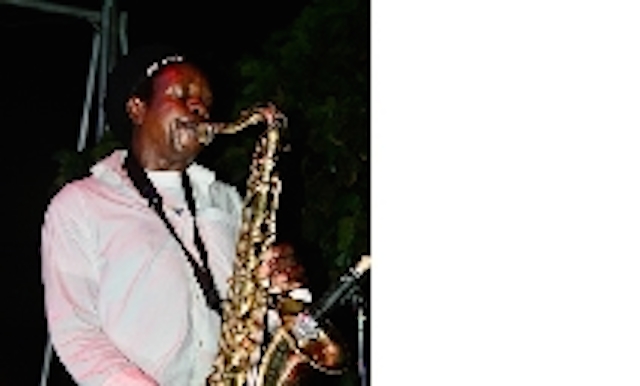The Mirror's Health , Lifestyle and Fashion

Colonel Faat passes on
Apart from being an active part of Gyedu Blay Ambolley’s Sekondi Band until he fell ill a little over a year ago, Colonel Faat also played on numerous recording dates and live sessions with a variety of acts including Rocky Dawuni, Kojo Antwi, Tinny, Paapa Yankson, Della Hayes, Amakye Dede, Obrafour and Reggie Rockstone.
Advertisement
He recorded an album under his own name, out of which a single was put out by Agogo Records in Germany.
“Colonel Faat made a great contribution to popular music in Ghana. He had a great tone on the sax and helped groom young talents. He was also a good engineer who perfectly understood the music he dealt with in the studio,” said Ambolley who travelled with him for gigs in places such as France, Germany, Holland, Belgium, Poland and Denmark.
In an interview with Colonel Faat sometime ago, he said he came to settle in Ghana in 1994. He started getting noticed here when he teamed up with actress and singer Rama Brew, pianist Charles Fafa, drummer Kwame Adu and bassist Ben Ago to form a group that based at the Golden Tulip Hotel in Accra.
After the demise of that group, he joined hands with trumpeter/saxophonist Dela Jackson, drummer Siisi France and bassist Ben Ago to form the Fabeja Band which became a regular feature at the then Bassline Jazz Club at North Ridge in Accra.
Though Colonel Faat felt very much at home here, Ghana was not his initial destination when he decided to get out of Cameroun to pursue music. According to him, he and four other friends in secondary school fell so much in love with Nigerian Prince Nico Mbarga’s music that they decided to run away to Nigeria to also become musicians in 1982.
They left school without permission from their parents and headed to Fela Anikulapo’s Kuti’s other shrine at Pepple Street in Ikeja. The original Fela Kuti shrine, Kalakuta Republic in Lagos, had been burned to the ground in 1977 after an assault by Nigerian soldiers.
Colonel Faat said for a year, they did not have the chance to touch any instrument but were paid stipends and fed for free to carry out basic chores at the shrine.
With a wandering spirit still lurking in him, Colonel Faat abandoned his friends and travelled to Cote d’Ivoire where a kind guitarist and band owner, Dano Boli, gave him the chance to learn to play the saxophone in his band.
Dano Boli taught him the rudiments of music and was drafted into the junior side of Boli’s band to participate in a music talent hunt called Houphouet Biogny’s Podium.
Luckily for Colonel Faat, his group won the contest and an Italian who noticed his talent, drafted him into a school band he managed. They then went on an Italian tour where they played in several cities.
That exposure helped Colonel Faat develop a unique, pleasant tone on the sax by the time they got back to Cote d’Ivoire. Some bands began to chase after him and he played with a couple of them before deciding to settle in Ghana in 1994.
The man made up his mind to learn sound engineering as well. Whilst still playing his sax, he became an assistant at Hush Hush Recording Studios at Awudome in Accra. Feeling confident enough later to handle recording sessions by himself, Colonel Faat set up his own studio and recorded several artistes including Amakye Dede, Dela Jackson and Dela Hayes.
In a tribute to the famous Cameroonian saxophonist Manu Dibango when he died in March 2020, Colonel Faat said: “I grew up listening to the music of Dibango. As a sax player myself, there’s a little bit of his influence on me. What I really admired about him, however, was the very high level of respect he earned for being a good musician.”
Colonel Faat earned a high level of respect for himself also as a good musician and recording engineer. He was survived by six sisters and a 14-year-old daughter. May he Rest In Peace.




